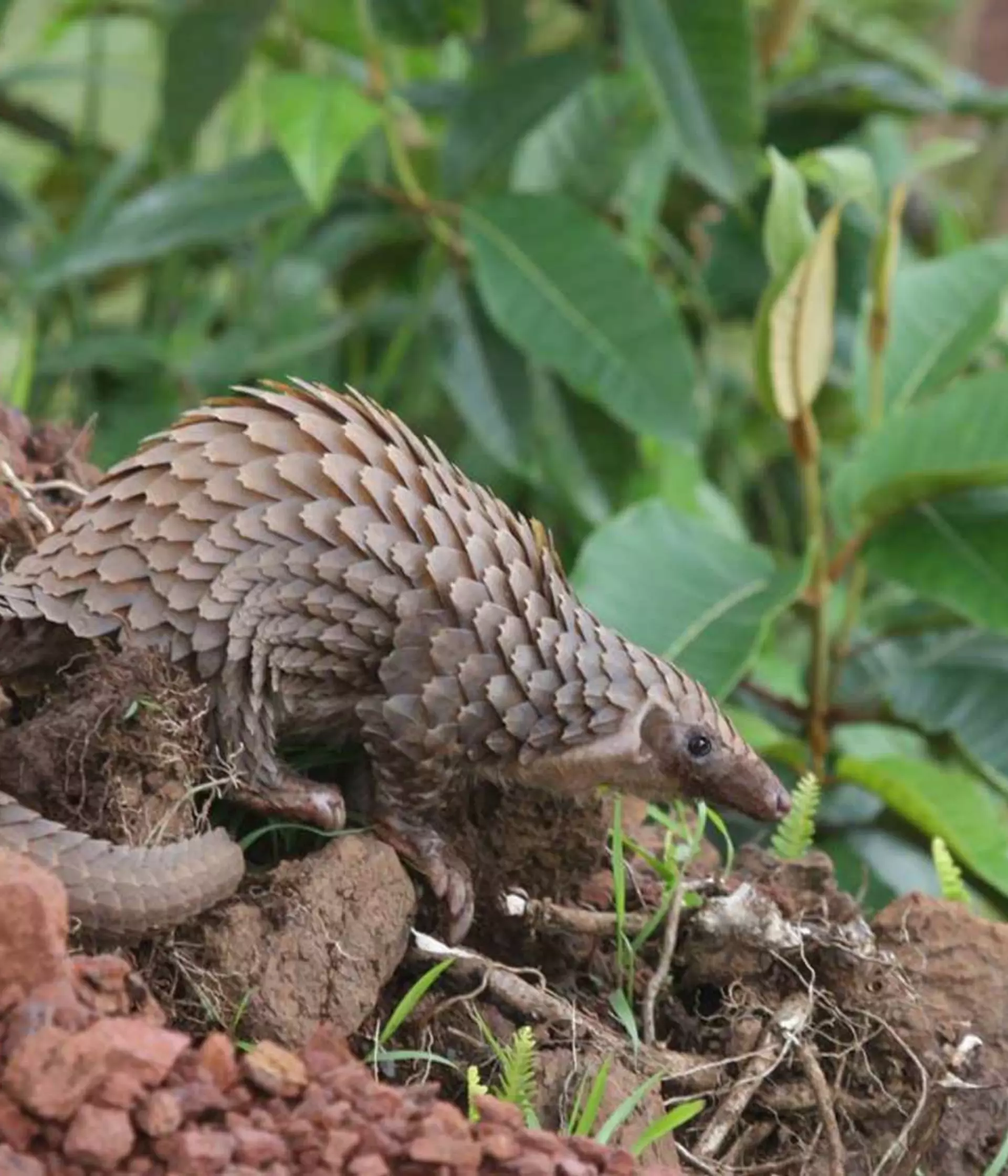Pangolins in Africa
Pangolins are the most trafficked wild mammal in the world. The scaley anteater faces devastating threats. This includes poachers, uncontrolled harvesting for the national and regional bushmeat trade, as well as a demand for luxury meat and traditional medicine in Africa and Asia.
With our MENTOR (Mentoring for Environmental Training in Outreach and Resource conservation) POP (Progress on Pangolins) fellowship programme, we worked to develop a cross-disciplinary team of conservation leaders to tackle the growing threats the species faces.
How have we helped protect pangolins in Africa?
The MENTOR POP Fellowship Programme, which took place between 2015 and 2017, was a cooperative agreement between the US Fish and Wildlife Service (USFWS) and ZSL which aimed to address these threats and conserve pangolins by developing a team of early-career Central African and Asian conservation practitioners from varied disciplines to champion the conservation of pangolins in the Congo Basin.
ZSL - host organisation for this programme - and the IUCN SSC Pangolin Specialist Group are involved in pangolin conservation in Cameroon and Asia and will provide support with project implementation, as well as pangolin expertise, site-based ecological assessments, bio-monitoring and law enforcement.
Why we’ve worked to protect pangolins in Africa
Of eight species of pangolin, four are found in Africa and all are listed as Vulnerable by the IUCN Red List. The illegal wildlife trade represents a major threat for all pangolin species, with an increasing demand in Africa.
Three pangolin species are found in the Congo Basin:
The white-bellied tree pangolin (Phataginus tricuspis)
The black-bellied tree pangolin (Phataginus tetradactyla)
The giant ground pangolin (Smutsia gigantea).
Until now, these species have received little conservation attention, and there is a lack of knowledge on the impacts of bushmeat trade on their populations. The Cameroon government is encouraging international cooperation around conservation challenges such as wildlife trafficking, but despite significant in-country expertise on wildlife conservation, there is still a need for specialized pangolin experts to focus on the threats to pangolins and to implement creative solutions.
Cameroon is therefore the right place to test innovative methods to conduct biological field assessments and address pangolin bushmeat trade and trafficking.
What did our work to protect pangolins in Africa achieve?
The goal of this programme was to develop capacity to secure the future of the Congo Basin’s three species of pangolin. To achieve this, a team of nine Central African and Asian Fellows were trained and equipped with the skills and tools to design and deliver conservation programmes to address threats to the Congo Basin’s three pangolin species.
Through the programme, MENTOR POP Fellows were provided with academic and field-based training and internships, mentoring from experienced conservation professionals, and experiential learning in best conservation practices.
The programme covers critical areas for pangolin conservation, including:
Field assessments on pangolin populations
Offtake, trade
Law enforcement
Demand reduction.
As part of the programme, Fellows shadowed professionals who are experts on their areas of interest for addressing pangolin conservation.
Fellows worked in three Action Groups
1) Field Assessments, 2) Legal Systems, and 3) Demand Reduction to develop and implement projects to conserve pangolins.
The programme setting was in Cameroon but its ultimate goal is to stabilise the pangolin populations in Central Africa and to disrupt their trafficking circuits to SE Asia.
People involved
Francis Tarla (Programme Co-ordinator)
Andrew Fowler (West and Central Africa Regional Manager)
Carly Waterman (Pangolin Technical Specialist, ZSL)
Nancy Gelman (Programme Officer, US Fish and Wildlife Service, Wildlife Without Borders, Africa Program)
Partners
Publications
Find out more information about USFWS MENTOR programme
Urgent action to stop the devastation of critical species and habitats by helping people and wildlife live better together, is the only way to save the natural world we love and depend upon. That’s where ZSL comes in, and where you can play your part.
